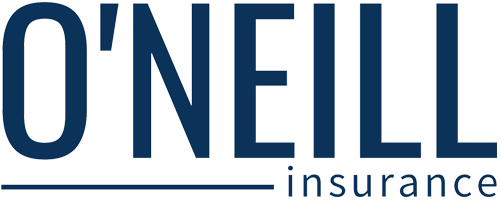
In 2016, 5,190 fatal work injuries were reported, which is a 7% increase from the year prior (Census of Fatal Occupational Injuries).
And in Ohio alone, we had 164 work-related fatalities in the same year.
While that number for our state is down from 202 in the previous year, it’s still problematic.
So what are we doing about it?
We’re making workplace safety a priority, and the Occupational Safety and Health Administration (OSHA), is ensuring that.
What is OSHA?
The primary goal of OSHA is to carry out the Occupational Safety and Health Act (OSH Act), which was originally passed by Congress in 1970.
The OSH act underwent several amendments and revisions, but it’s still in place “…to assure so far as possible every working man and woman in the Nation safe and healthful working conditions and to preserve our human resources.”
OSHA contributes to workplace safety and health by enacting regulations that support this ideal.
All OSHA standards can be found in title 29 of the code of Federal Regulations (CFR), Parts 1902-1990.
Although, OSHA does allow states to enact occupational safety and health laws of their own under federally-approved plans.
But that doesn’t mean that state-run programs are more lenient on their rules and regulations. Quite the opposite, in fact.
State-run programs are at least as strict, and sometimes more so, than federal standards.
The point is to ensure a minimum standard of job safety and health that all employers must follow to protect their employees.
Are All Employees Covered By The OSH Act?
The OSH Act covers all employees except public employees in state or local governments and those who are self-employed.
Public employees in state and local governments are covered by their state’s OSHA-approved plan, if applicable.
Federal employees are covered under the OSH Act’s federal employee occupational safety and health programs. United States Postal Service employees, however, are subject to the same OSH Act coverage provisions as those in the private sector.
Other federal agencies that have issued requirements affecting job safety and health include the Mine Safety and Health Administration (MSHA) and some agencies of the Department of Transportation (DOT), including the Federal Motor Carrier Safety Administration (FMCSA).
Employees in these industries are subject to their respective regulations.
Additionally, businesses in the retail, service, finance, insurance and real estate sectors that are classified as “low-hazard” are exempt from most OSHA requirements, as are small businesses with 10 or fewer employees.
Exceptions are discussed in 29 CFR Part 1904, which also explains which OSHA regulations exempt employers are still required to follow.
What Are Your Responsibilities as a Business Owner?
If you are a business owner covered by the OSH Act, you are required to provide your employees with a workplace environment that’s free from recognized hazards that are causing, or are likely to cause, death or serious physical harm.
You must also comply with the OSHA statutory requirements, standards and regulations that require you to:
- Provide well-maintained tools and equipment, including appropriate personal protective equipment (PPE)
- Provide medical assistance and guidance for employees sustaining workplace injuries/illnesses
- Provide required OSHA training
- Report accidents that result in fatalities to OSHA within eight hours
- Report accidents that result in the hospitalization of three or more employees to OSHA within eight hours
- Keep records of work-related accidents, injuries, illnesses and their causes
- Post annual injury/illness summaries for the required period of time
Why is OSHA Important To Your Business?
OSHA sets out to ensure you are providing your employees with a safe and healthy work environment. Their ultimate goal is to curb the number of fatalities, injuries and illnesses that occur in the workplace every day. As you would agree, our nation’s workforce deserves a safe workplace.
Therefore, if OSHA deems your business is not committed to safety, and you do not follow OSHA’s rules and regulations, you could face a number of steep fines and citations.
What’s Next?
In addition to providing all types of business insurance you could possibly need, we also go beyond insurance by educating our clients on compliance, risk management and overall, safety and protection.
Here at The O’Neill Group we have a number of free resources and tools to help you with your OSHA compliance, including a FREE electronic recordkeeping tool for your OSHA 300, 300A and 301 forms.
Let’s connect.
My name is Dani Kimble, and I’d love to set you up with our tools and resources on OSHA compliance and OSHA recordkeeping. Call me at (330) 334-1561, email me at dkimble@oneillinsurance.com or click here to schedule a time on my calendar that’s convenient for you.
{{cta(‘84663d01-e081-4e98-bd51-d747bf7c1dc9’)}}
This article was adapted from Zywave. This is not intended to be exhaustive nor should any discussion or opinions be construed as legal advice. Readers should contact legal counsel or an insurance professional for appropriate advice.

